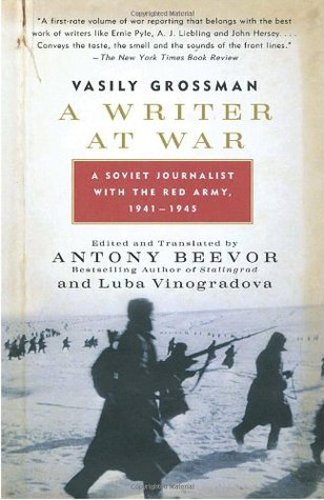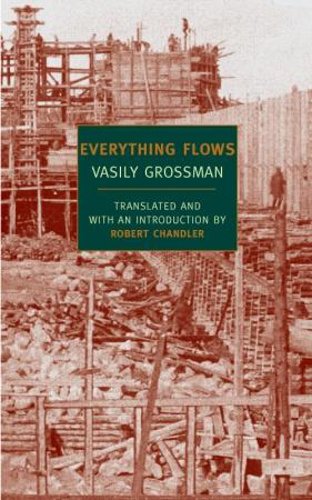Estate of Vasily Grossman
Vasily Grossman (1905-1964) came to be regarded as a hero of World War II on the strength of his war reportage. Life and Fate, his novel about the siege of Stalingrad, was written in 1960 but was declared a threat to the Soviet government and was confiscated by the KGB. Grossman was told that there was no chance of the novel being published for another two hundred years. Twenty years later, it was smuggled out of the Soviet Union on microfilm and published to wide acclaim in the West.
Books
A Writer At War
Soviet author Grossman volunteered for the army when the Germans invaded in 1941 and spent more than three years as a special correspondent at the front for the army newspaper Red Star. His wartime writing established him as a major "voice" of war—a status resembling in many ways that of Ernie Pyle in America. This volume, a perfect complement to the panoramic vision of Ivan's War, collects excerpts from Grossman's notebooks and published dispatches, few of them longer than a couple of paragraphs. And while the dispatches usually describe scenes fitting with Soviet orthodoxy, Grossman's notebooks also record the bloody-mindedness, the despair and the disaffection that permeated Soviet ranks as the Red Army paid its dues of learning how to fight a modern war. That material, of course, was not published at the time. Grossman was a perceptive observer with an eye for essential detail. His vignettes of the fighting at Kursk and the battles that brought the Red Army into Berlin are models of combat reporting, and the elegiac realism of his description of Treblinka merits wide anthologizing in Holocaust literature. This volume stands among the finest eyewitness accounts of Soviet Russia's war on the Eastern Front.
(Pantheon, January 2006)
Everything Flows
Everything Flows is Vasily Grossman’s final testament, written after the Soviet authorities suppressed his masterpiece, Life and Fate. The main story is simple: released after thirty years in the Soviet camps, Ivan Grigoryevich must struggle to find a place for himself in an unfamiliar world. But in a novel that seeks to take in the whole tragedy of Soviet history, Ivan’s story is only one among many. Thus we also hear about Ivan’s cousin, Nikolay, a scientist who never let his conscience interfere with his career, and Pinegin, the informer who got Ivan sent to the camps. Then a brilliant short play interrupts the narrative: a series of informers steps forward, each making excuses for the inexcusable things that he did—inexcusable and yet, the informers plead, in Stalinist Russia understandable, almost unavoidable. And at the core of the book, we find the story of Anna Sergeyevna, Ivan’s lover, who tells about her eager involvement as an activist in the Terror famine of 1932–33, which led to the deaths of three to five million Ukrainian peasants. Here Everything Flows attains an unbearable lucidity comparable to the last cantos of Dante’s Inferno.
(New York Review of Books, December 2009)


